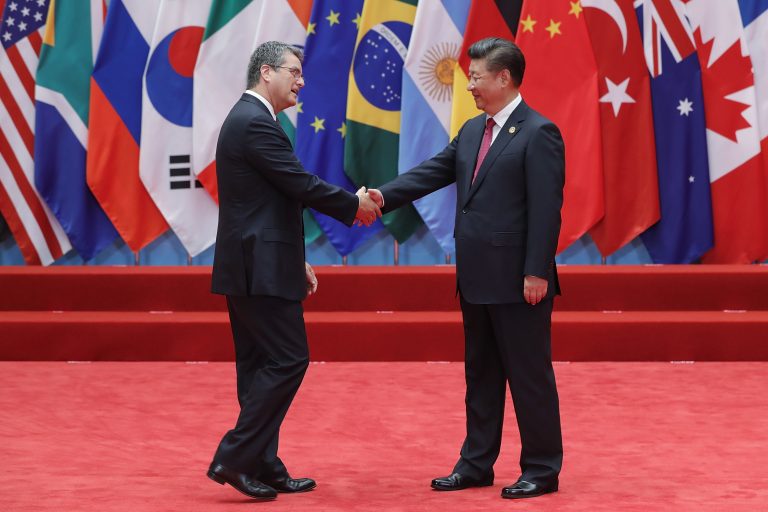As president, Donald Trump has taken a hard nationalistic approach to trade policy, which included increased restrictions on Communist China. President-Elect Joe Biden has been highly critical of Trump’s approach to trade, but still wants to keep up pressure on China.
Biden is a notorious supporter of globalization. According to Breitbart, major corporations who rely on labor from impoverished oppressed nations are eager for Biden’s globalization agenda to be put into place so that they can benefit from cheap labor.
Current United States Trade Representative (USTR) Robert Lighthizer says Trump’s commitment to economic nationalism “changed the way people think about China.” He claims that hyper-globalization has destroyed communities that rely on companies operating within the U.S.
Lighthizer believes that Trump’s policies are the best course to take against China, America’s chief adversary, even if it raises prices for U.S. businesses and consumers. He feels that the $370 billion on Chinese trade tariffs should all be kept.

According to Breitbart, “Since 2001, U.S. free trade with China has eliminated at least 3.4 million American jobs. In 1985, before China entered the WTO at the end of 2001, the U.S. trade deficit with China totaled $6 billion. By 2019, the U.S. trade deficit with China totaled more than $345 billion.”
Success
You are now signed up for our newsletter
Success
Check your email to complete sign up
The incoming Biden-Harris administration has claimed that they “will lead a just and equitable recovery that rebuilds a strong, inclusive middle class and builds an economy for the future.”
According to the Council on Foreign Relations, Biden has slammed Trump’s approach to trade, but also hammered China’s unfair practices and criticized unrestrained globalization. Biden will not immediately lift Trump’s tariffs on China, but wants to develop a strategy with allies for Chinese trade relations.
Trump backed out of trade deals with the Trans-Pacific Partnership (TPP) that former President Barack Obama put in place and caused turmoil within the World Trade Organization’s (WTO) by blocking new appointments and threatening outright withdrawal. Joining the WTO has been prosperous for China, which has contributed to Trump’s frustrations with the organization. Trump has also renegotiated agreements with Canada, Mexico, South Korea, and Japan, while imposing tariffs on steel and aluminum on countries throughout the world.
The Council on Foreign Relations claimed: “Biden sought to chart a course somewhere between Trump’s trade wars and an uncritical acceptance of free trade.” As a Vice President, Biden championed the TPP, and while a senator he was supportive of the North American Free Trade Agreement (NAFTA) and China’s entry into the WTO, but he was also against trade deals such as the one made with Peru in 2006 that was weak on worker’s rights and environmental protections. Furthermore, the Council on Foreign Relations claims that “some of his rhetoric on China echoes Trump’s, calling for ‘aggressive’ retaliation against Beijing’s trade cheating.”
Continuing through the end of his term a tough approach with China, Trump issued an executive order on Nov. 12 to stop investments in Chinese companies that are tied to China’s military, citing threats to national security, foreign policy, and the economy of the United States. Following up with this, he signed an order on Jan.13 requiring U.S. investors to completely divest their holdings of securities of Pentagon-blacklisted Chinese military companies by Nov. 11, 2021.
Biden selected Katherine Tai to take over Robert Lighthizer’s position as USTR. Tai has served in the USTR’s Office of the General Counsel, first as Associate General Counsel from 2007 to 2011, then as Chief Counsel for China Trade Enforcement with responsibility for the development and litigation of U.S. disputes against China at the WTO. She has said that Biden’s trade policy will focus on American workers to try and protect and enhance U.S. jobs and will include confrontation with China over their trade practices.
Biden’s pick for Treasury secretary will be Janet Yellen, who disagrees with Trump imposed Chinese tariffs, but does acknowledge that there are legitimate issues that need to be addressed — such as Chinese advancement in artificial intelligence, 5G, and other technology — that she thinks will have significant consequences on the global economy.
Follow us on Twitter or subscribe to our email list
















